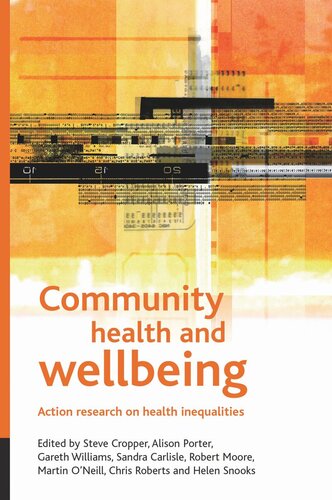

Most ebook files are in PDF format, so you can easily read them using various software such as Foxit Reader or directly on the Google Chrome browser.
Some ebook files are released by publishers in other formats such as .awz, .mobi, .epub, .fb2, etc. You may need to install specific software to read these formats on mobile/PC, such as Calibre.
Please read the tutorial at this link: https://ebookbell.com/faq
We offer FREE conversion to the popular formats you request; however, this may take some time. Therefore, right after payment, please email us, and we will try to provide the service as quickly as possible.
For some exceptional file formats or broken links (if any), please refrain from opening any disputes. Instead, email us first, and we will try to assist within a maximum of 6 hours.
EbookBell Team

4.1
90 reviewsImproving health in populations in which health is poor is a complex process. This book argues that the traditional government approach of exhorting individuals to live healthier lifestyles is not enough - action to promote public health needs to take place not just through public agencies, but also by engaging community assets and resources in their broadest sense. The book reports lessons from the experience of planning, establishing and delivering such action by the five-year Sustainable Health Action Research Programme (SHARP) in Wales. It critically examines the experience of SHARP in relation to current literature on policy; community health and health inequalities; and action research. The authors make clear how this regional development has produced opportunities for developing general concepts and theory about community-based policy developments that are relevant across national boundaries and show that complex and sustained community action, and effective local partnership, are fundamental components of the mix of factors required to address health inequalities successfully. The book concludes by indicating the connections between SHARP and earlier traditions of community-based action, and by arguing that we need to be bolder in our approaches to community-based health improvement and more flexible in our understanding of the ways in which knowledge and inform developments in health policy. The book will be of interest to practitioners and activists working in community-based projects; students in community development, health studies and medical sociology; professionals working in health promotion, community nursing and allied areas; and policy makers working at local, regional and national levels.